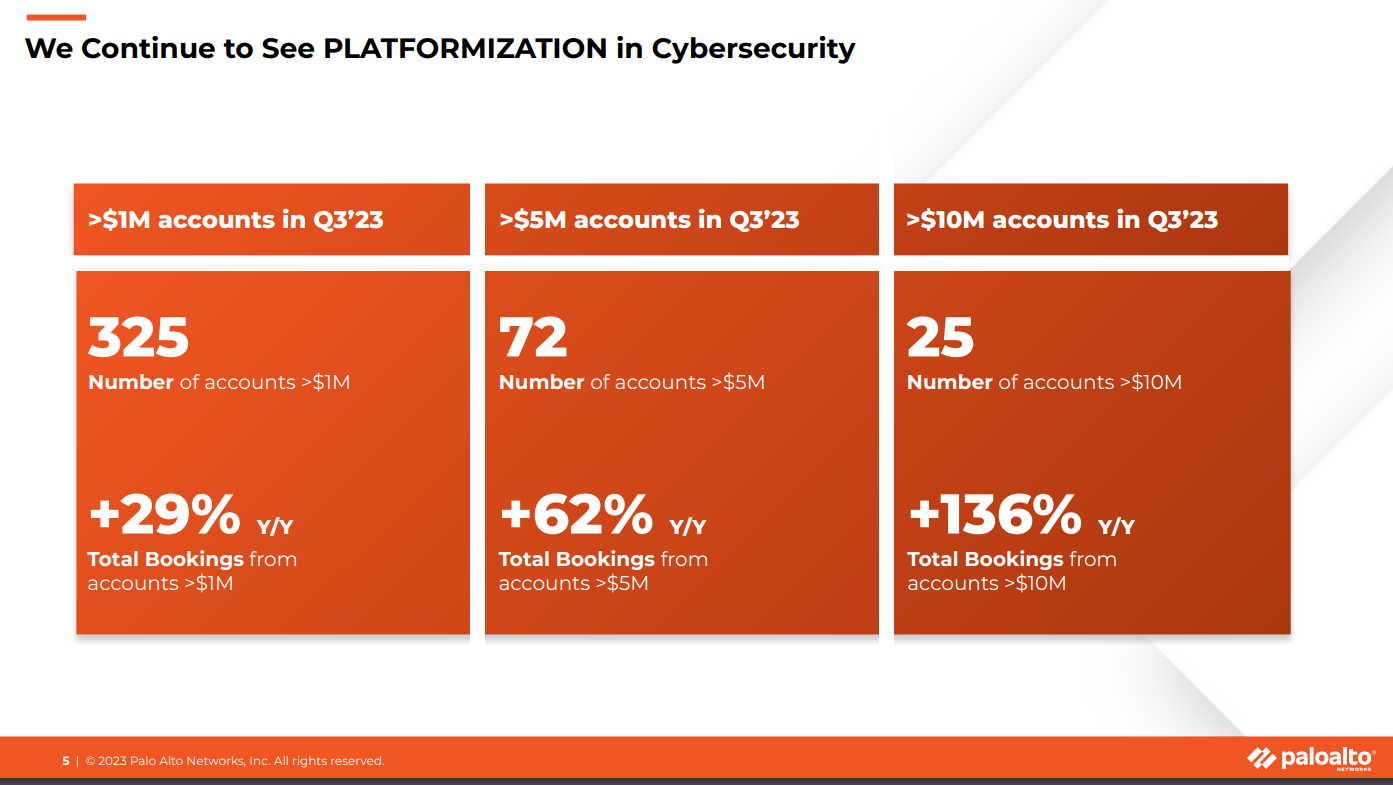Palo Alto Networks CEO Nikesh Arora said generative AI has boosted productivity but also can present security risks.
Speaking on Palo Alto Networks' third quarter earnings conference call, Arora said:
“AI is a data problem and security is a data problem and has an interesting role to play in security, both for its ability to help deliver superior security outcomes in near real-time and unfortunately the potential threat associated with AI being used to generate attacks. “
Arora added that there's "significant opportunity" to embed generative AI into Palo Alto Networks' security platform, products and workflows. These opportunities include:
- Improving detection and prevention efficacy by advancing the company's AI and machine learning models in products today.
- Providing more accessible ways to enable customers to engage and comprehend data sets and telemetry. Generative AI can also provide a more natural-language driven interface to products.
- Bolster productivity throughout the Palo Alto Networks organization and save money on support costs, headcount and other costs that add up at scale. On CNBC, Arora noted that his company used generative AI to create marketing narratives in four hours compared to two weeks.
"We intend to deploy proprietary Palo Alto Networks security LLM in the coming year and are actively pursuing multiple efforts to realize these three outcomes," said Arora.
Nevertheless, Palo Alto Networks executives acknowledge that generative AI is also a security risk. Arora said that Lee Klarich, Chief Product Officer and team, have been researching ways that generative AI can more efficiently produce malware. "There's a lot of work we're doing as well to make sure we are able to protect our customers against any such activity that is conducted using generative AI," said Arora.
Overall, Arora was upbeat about generative AI's impact on security and its business. Generative AI will likely favor the companies that have strong data sets. "I think it favors the people who have a lot of data already as part of their strategy, and they have built a business on the back of a data-led strategy," said Arora. "It favors companies that have a tremendous amount of data."
Palo Alto Networks delivered a strong third quarter with net income of $107.8 million, or 31 cents a share, non-GAAP earnings of $1.10 a share, and revenue of $1.72 billion, up 24% from a year ago. For the fourth quarter, Palo Alto Networks projected revenue between $1.94 billion and $1.97 billion with non-GAAP earnings of $1.26 a share to $1.30 a share. For fiscal 2023, Palo Alto Networks is expecting revenue of $6.88 billion to $6.91 billion.



0 Commentaires